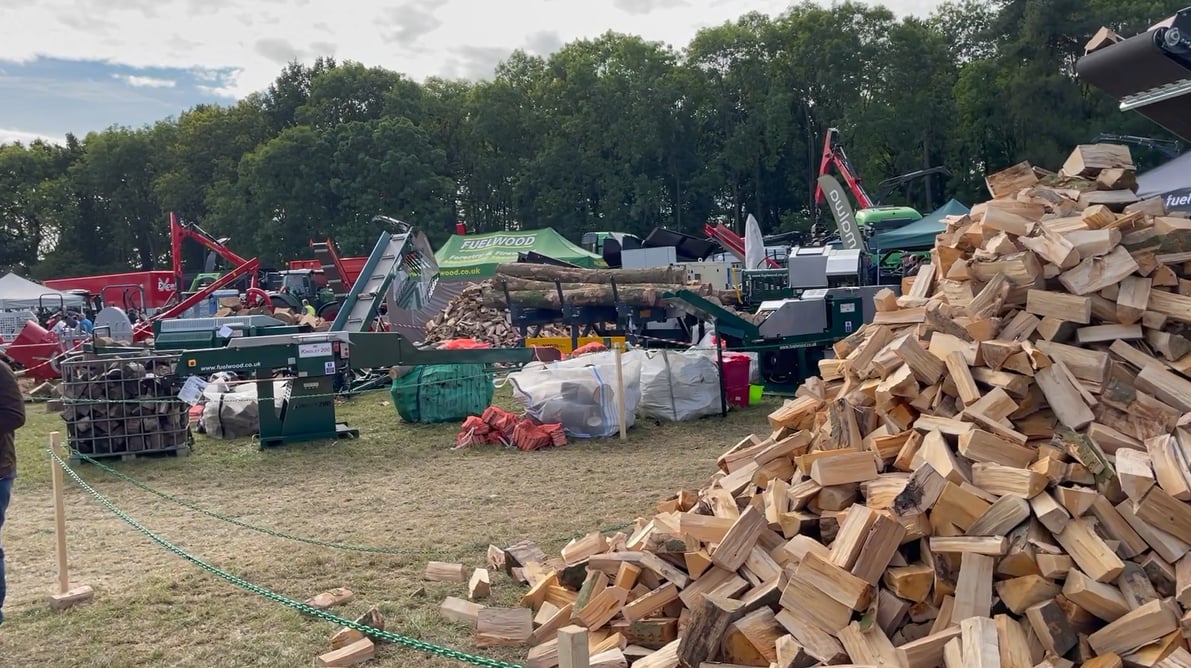The Government has been called upon to take action following several reports that associate the use of wood-burning stoves with significant health and environmental issues.
Advocates are calling on the Government to evaluate the potential ban of wood burning stoves in residential properties across the United Kingdom, in light of significant health and environmental concerns associated with these devices. Notwithstanding the existence of smoke control areas and regulations governing the materials permitted for combustion, wood burning continues to represent a notable source of emissions.

-
That’s a remarkable amount of work hours for a single machine, the Norcar 600 owned by Erkki Rinne is taken well care of, it even has the original Diesel engine.
-
Kieran Anders is a forestry contractor working in the lake district. His work involves hand cutting and extracting timber using a skidder and tractor-trailer forwarder.
-
It is not possible to eliminate chain shot, but there are simple steps that can be taken to reduce the risk.
-
Arwel takes great pride in the fact that the mill has no waste whatsoever, “the peelings are used for children’s playgrounds, gardens and for farm animals in barns in the winter and the sawdust has multiple uses in gardens and farms as well.
-
Timber hauliers need to encourage young blood in, and also look after the hauliers we have, we need make the sector a safe and positive place to work.
FIND US ON
Since 2022, all newly manufactured wood-burning stoves have been required to comply with specific emission targets, ensuring that they operate with enhanced environmental efficiency and are designated as Ecodesign compliant. Furthermore, the fuel utilized in these appliances is subject to stringent regulations, permitting only wood with a moisture content of 20 percent or less, which must be certified by reputable organizations such as Woodsure and HETAS for combustion.
Burning wood and coal in homes contributes to about 2,500 deaths a year, a report has found.
The use of wood burners and log burners may face prohibition should the Labour Party government heed the urgent counsel of health professionals. A recent report has indicated that the combustion of wood and coal within residential settings is responsible for approximately 2,500 fatalities annually.
“The combustion of domestic materials emits fine particulate matter that can be inhaled and subsequently absorbed into the bloodstream, potentially leading to or aggravating a range of health conditions, including asthma, lung cancer, diabetes, and stroke, among others. Guy Hitchcock, Air Quality Technical Director, emphasized the significance of this issue.
The practice of burning within residential areas has a direct impact on the health of individuals residing in affected households, as well as on neighboring communities. From an economic standpoint, the health complications arising from such practices impose significant financial burdens on the National Health Service (NHS), costing millions annually and consuming substantial resources.
“Not only would reducing domestic burning improve public health, but it would reduce economic losses from time off work.”
Larissa Lockwood, the Director of Policy and Campaigns at Global Action Plan, the organization responsible for Clean Air Night, stated: “Current measures intended to mitigate wood burning emissions are insufficient in addressing the core issue of wood burning.
The Government of the United Kingdom must implement actions to ensure that all individuals have access to cleaner, more sustainable, and affordable heating solutions. This includes improving home insulation and enhancing the authority of local governments to address air pollution effectively. Furthermore, it is essential to provide explicit guidance to the public regarding the health risks associated with the use of wood and other solid fuels for heating in domestic settings.”
In 2023, the Conservative Party announced its intention to tighten the regulatory limits that new stoves must adhere to in smoke control areas, proposing a reduction of the permissible emissions from 5 grams to 3 grams. However, it is important to note that there is currently no legislation in effect to implement this change.
A Government spokesperson articulated, “Air pollution is a significant public health concern. As outlined in our NHS 10-Year Plan, we are committed to reducing emissions from domestic burning to safeguard public health and local communities.” Furthermore, the Government has allocated £575 million to assist Local Authorities since 2018 and continues to collaborate with them to diminish emissions, thereby minimizing public exposure to air pollutants.
Does this imply that all our wood-fired power stations will also need to close for public safety reasons, or is this merely a smokescreen to increase our dependence on the large energy companies?
It will be interesting to observe whether there is an increase in fatalities due to hypothermia, as many individuals rely on the collection of their own firewood as an affordable method to heat their homes. Additionally, numerous rural regions rely on wood stoves for heating and hot water, making the potential changes particularly critical for these communities.
Should this initiative be enacted, it will have far-reaching implications for the forestry sector, particularly impacting equipment manufacturers and suppliers.
One can only hope that the government will come to its senses and turn down this proposal. However, considering Labour’s recent choices, I’m not holding my breath!
Sign up for our free monthly newsletter here
Contact forestmachinemagazine@mail.com to get your products and services seen on the world’s largest professional forestry online news network.
#homeoflogging #writtenbyloggersforloggers #loggingallovertheworld
Written by loggers for loggers and dedicated solely to the equipment used in forestry operations.








